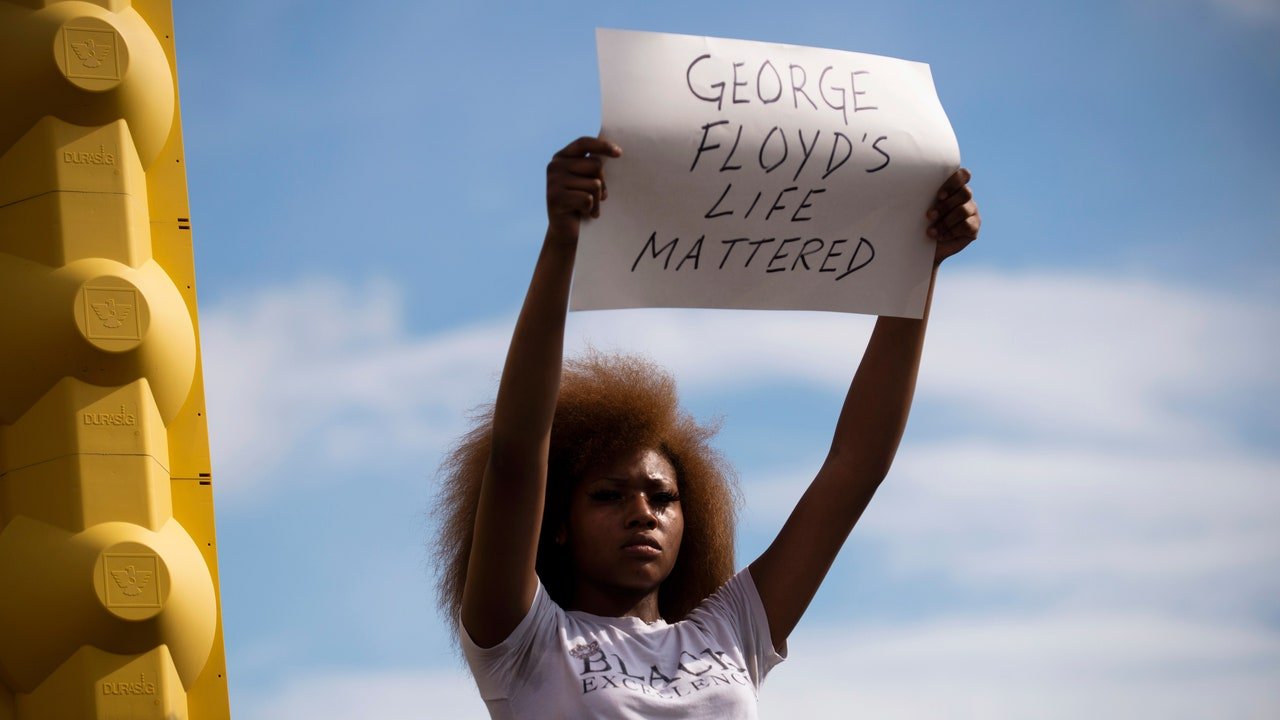How many times have you watched George Floyd die? Watched the video of him under a police officer’s knee, saying he can’t breathe, calling desperately for his mother, finally slipping into unconsciousness? We watched on as Floyd died last May, and it was awful. It is still awful. We’ve all seen police brutality before, we’ve accumulated entire box sets of body-cam violence, becoming horridly desensitized as we’re inundated with imagery of Black bodies in pain, succumbing to a never-ending stream of macro-aggressions. Young men “accidentally” shot instead of tasered. Young women killed in botched raids.
But George’s death wasn’t like the others. It stuck. I think it was the offending police officer’s audacity that shook us. The nerve to murder someone in front of our eyes. It was his stubborn, unrelenting, unwillingness to ease the pressure on Floyd’s neck that stopped us in our tracks. His calm versus George’s rising panic. It felt so heartless. It was so heartless. In the 9 minutes and 29 seconds it took for George Floyd to asphyxiate, everything shifted. It felt like the entire world saw red. Enough was enough.
Last summer was one of reckoning. I felt like I opened my feed each morning to content battling it out to be the worst, most unnecessarily violent video I’d ever seen. Witnessing the police brutality at marches against police brutality felt barbaric. Like many outside the States, I felt a great sense that African Americans and their allies were working for us all. Yes, Black Lives Matter was striving to challenge and change an American system that perpetuates violence and consistently excuses killing, but it was also asking, in its simplest terms, for equality, for humanity.
This week offered all of us the oddest conundrum: to have watched a man being murdered and wonder whether or not the murderer would be convicted, whether justice as we know it would be served or the officer protected. The defense in Floyd’s case offered a narrative of an underlying health condition canceling out the overlying issue of a policeman’s knee on his windpipe. It felt flimsy against that awful, awful video. We watched, we waited, the jury wasn’t out for long. Oprah quite rightly thanked every juror who unanimously returned three counts of guilty: second-degree murder, third-degree murder, and manslaughter.
Despite feeling like the legal bare minimum, guilty, guilty, guilty is objectively good. A good thing that has happened after months of incredibly bad things in a bad system. Justice has been served, legally at least. And though I don’t think I’m alone in feeling a little hollow, a little uneasy, a little powerless, the perpetrator is going to prison for the crimes he committed, he is legally accountable. I wanted to glean some understanding in his eyes above his mask as the verdict rang out, but I saw nothing. Nothing. I’m not naming the guy that did this to George Floyd because this is bigger than him; he’s part of a rotting system that needs triage. His legal guilt is the first step on a long road to true justice. I recognize the guilty, guilty, guilty verdict is not a band-aid for systemic inequality, but guilty, guilty, guilty sends a clear message: America will not tolerate this.
